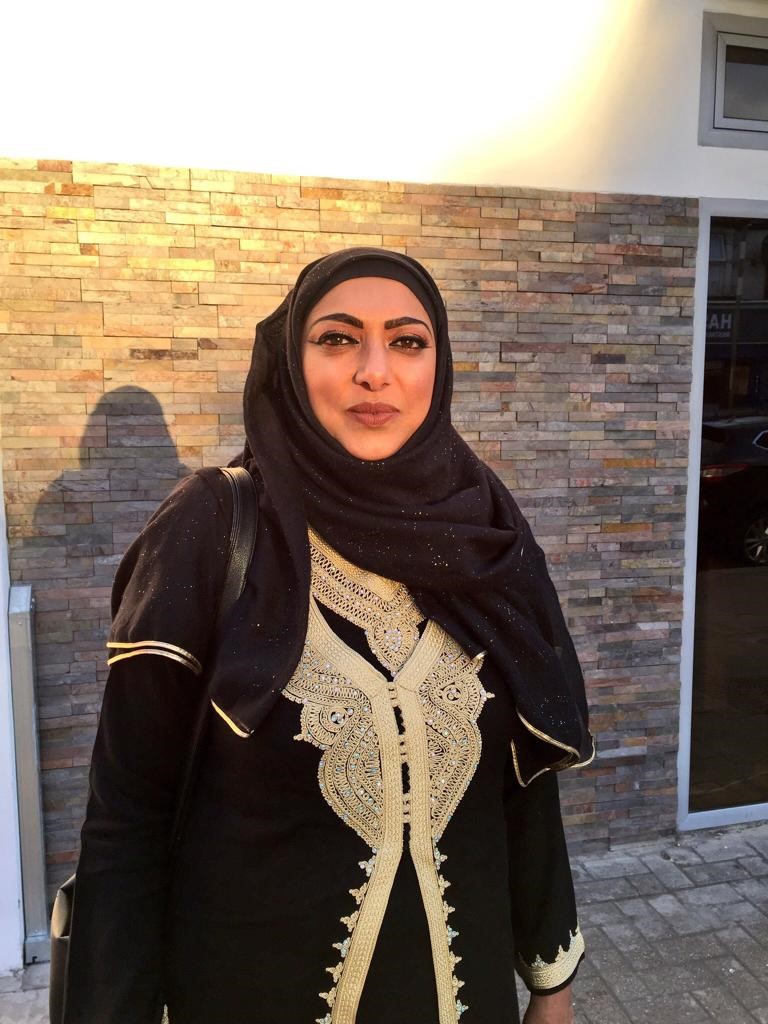"Education and understanding are key"

This South Asian Heritage Month, we spoke to Waltham Forest councillor Shabana Qadir, a participant and patient representative in the Genes & Health study. She shared her experience of being involved and why she hopes other Bangladesh and Pakistani people will take part.
“Everyone has a different reason for getting involved in research. For me, it was my nephew, who was diagnosed with thalassemia major when he was really young. The condition affects people differently, and while a lot is known about it, we’re still learning how it impacts people in different ways.
“I didn’t know anything about the condition before my nephew was diagnosed but when I researched it, I learned it’s quite common in South Asian communities. And that it’s often diagnosed in children born from a close-relative marriage, a common practice among South Asian communities.
“It was with this information in the back of my head that I agreed to take part in the Genes & Health study. I was in the council chambers one evening and spotted a stall promoting the study. I was immediately drawn to it. I hadn’t seen a research study just for people of Bangladeshi and Pakistani origin before. I signed up immediately and was one of the first people to give a DNA sample. It all went from there.
“I encourage people to get involved”
“Since donating, I’ve become more and more involved. I was part of workshop discussing the best way to tell people they have a genetic fault that might increase their risk of developing a condition like diabetes; I’ve joined the ethics board; and I’m a patient representative on the board for developing culturally competent genetic services. I learn so much but also feel like I’m giving back. I love it.
“I get so involved because for me, education and understanding are key. We know that in some communities, certain conditions are more common than others. For example, there are high rates of mental health problems, diabetes and heart problems in Bangladeshi and Pakistani communities. This can happen for a few reasons, including the traditional practice of close-relative marriage.
“By getting involved in studies like Genes & Health, which tell us more about ourselves, we can make informed decisions and be better equipped to manage any health conditions we or our family members may develop. This information can also be used at a community level, to look for patterns or traits that can in turn, help find new ways to diagnose, prevent and treat different conditions.
“That’s why this South Asian Heritage Month I’m encouraging anyone who comes from a Bangladeshi or Pakistani origin to sign up and get involved in Genes & Health. You’ll be doing something good for yourself, your community and future generations.
Read more:
 Afrikaans
Afrikaans Albanian
Albanian Amharic
Amharic Arabic
Arabic Armenian
Armenian Azerbaijani
Azerbaijani Basque
Basque Belarusian
Belarusian Bengali
Bengali Bosnian
Bosnian Bulgarian
Bulgarian Catalan
Catalan Cebuano
Cebuano Chichewa
Chichewa Chinese (Simplified)
Chinese (Simplified) Chinese (Traditional)
Chinese (Traditional) Corsican
Corsican Croatian
Croatian Czech
Czech Danish
Danish Dutch
Dutch English
English Esperanto
Esperanto Estonian
Estonian Filipino
Filipino Finnish
Finnish French
French Frisian
Frisian Galician
Galician Georgian
Georgian German
German Greek
Greek Gujarati
Gujarati Haitian Creole
Haitian Creole Hausa
Hausa Hawaiian
Hawaiian Hebrew
Hebrew Hindi
Hindi Hmong
Hmong Hungarian
Hungarian Icelandic
Icelandic Igbo
Igbo Indonesian
Indonesian Irish
Irish Italian
Italian Japanese
Japanese Javanese
Javanese Kannada
Kannada Kazakh
Kazakh Khmer
Khmer Korean
Korean Kurdish (Kurmanji)
Kurdish (Kurmanji) Kyrgyz
Kyrgyz Lao
Lao Latin
Latin Latvian
Latvian Lithuanian
Lithuanian Luxembourgish
Luxembourgish Macedonian
Macedonian Malagasy
Malagasy Malay
Malay Malayalam
Malayalam Maltese
Maltese Maori
Maori Marathi
Marathi Mongolian
Mongolian Myanmar (Burmese)
Myanmar (Burmese) Nepali
Nepali Norwegian
Norwegian Pashto
Pashto Persian
Persian Polish
Polish Portuguese
Portuguese Punjabi
Punjabi Romanian
Romanian Russian
Russian Samoan
Samoan Scottish Gaelic
Scottish Gaelic Serbian
Serbian Sesotho
Sesotho Shona
Shona Sindhi
Sindhi Sinhala
Sinhala Slovak
Slovak Slovenian
Slovenian Somali
Somali Spanish
Spanish Sundanese
Sundanese Swahili
Swahili Swedish
Swedish Tajik
Tajik Tamil
Tamil Telugu
Telugu Thai
Thai Turkish
Turkish Ukrainian
Ukrainian Urdu
Urdu Uzbek
Uzbek Vietnamese
Vietnamese Welsh
Welsh Xhosa
Xhosa Yiddish
Yiddish Yoruba
Yoruba Zulu
Zulu